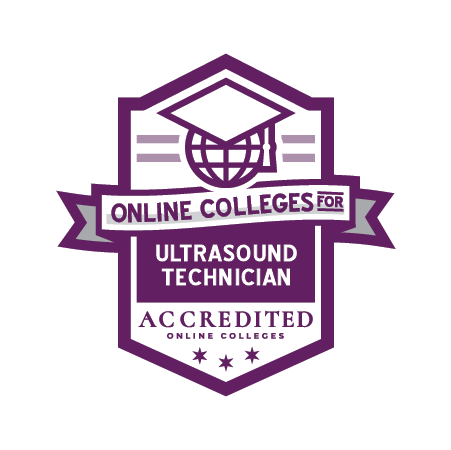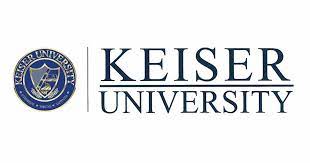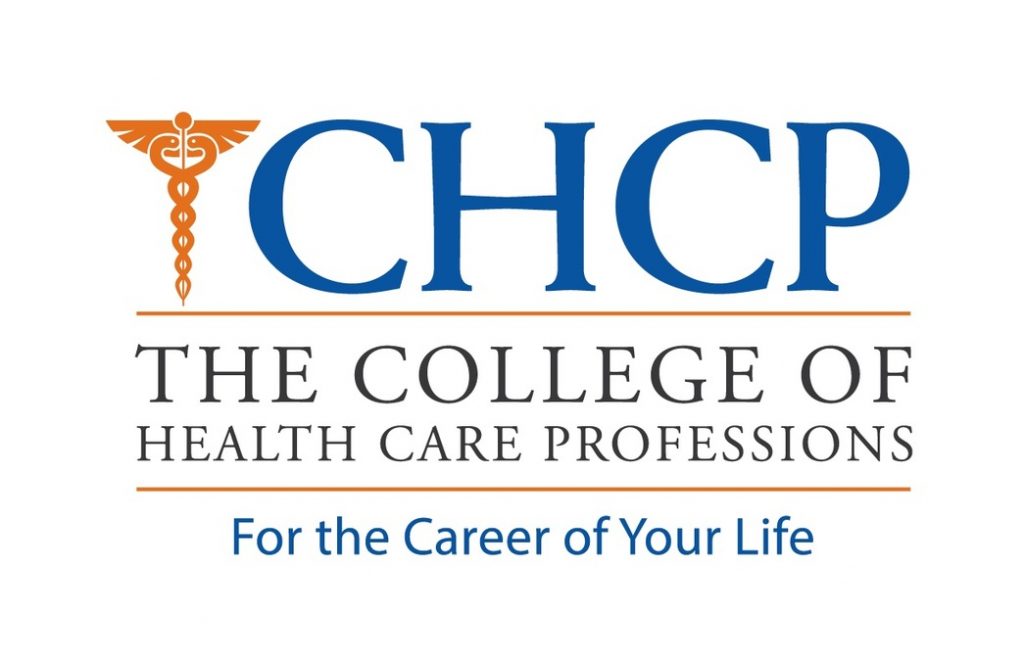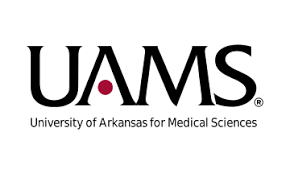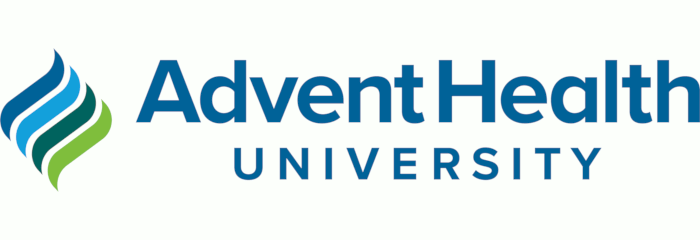The top ten ultrasound technician accredited schools could get you qualified for a new career within a year. Likewise, you can use one of these programs to build on the experience you’ve already gained in the industry to put better opportunities within your reach.
As a prospective sonographer, you can choose where you get your career training. Both traditional universities and accredited online colleges offer current and aspiring ultrasound technicians the chance to pursue higher education.
The benefit of studying remotely is that you don’t have to stop working to gain your certification or degree. Many online programs offer flexible start dates, asynchronous classes, and internship placements near your home to maximize flexibility.
Featured Programs
Online learning also makes specializing in more than one area of sonography easier. With a broad range of skills, you can access a wider and more diverse range of job opportunities. This, in turn, can improve your job security.
See Also:10 Accredited Online Colleges for Diagnostic Medical Sonography
What Level of Education Do I Need to Become an Ultrasound Technician?
You don’t need a bachelor’s degree to become an ultrasound technician. In many cases, enrollment in an associate’s degree (e.g., an associate of applied science or AAS) or postsecondary certificate program after high school (e.g., registered vascular technologist or RVT) paves the way to meet the minimum education requirements for the industry. In some cases, you could complete your sonography studies in as little as a year of full-time studies at one of the colleges for ultrasound technicians discussed below.
Another advantage of getting a certificate or associate’s degree is that they’re less expensive. A typical bachelor’s degree is roughly 120 credits and takes about four years to complete. An associate’s degree is usually around 60 credits, which takes two years to complete. Certificate programs are even shorter. The fewer credits you have to take, the less money you have to pay to finish your studies!
Degree programs and certificates can be found at community colleges and universities nationwide. This vast selection is good because you have plenty of choices for completing the necessary education. Yet, sifting through all the available programs can be laborious. That’s where this ranking comes in!
See Also: 30 Accredited Online Colleges for Respiratory Therapy
What Will I Learn With a Degree Related to Ultrasound Tech?
In most cases, you must meet specific requirements to gain admission to a diagnostic medical sonographer (DMS) degree program. The requirements of a typical DMS program include having an average GPA of around 2.5 across all courses, including:
- Anatomy and physiology
- General physics
- Medical terminology
- College algebra
- Biology
The remainder of your online classes for ultrasound tech are likely to include medical imaging courses. This might consist of classes like Sonographic Instrumentation, Abdomen and Small Parts Sonography, or Obstetric and Gynecologic Sonography.
In most cases, you’re expected to complete a set number of hours of clinical practice experience before graduation. Additionally, you’ll spend time learning about and practicing noninvasive cardiovascular or vascular sonography procedures.
Most ultrasound technician programs include a general education component, too. These courses, which may form up to half of the credits that make up your final degree, include general math and science classes, social science, and art.
See Also: 25 Accredited Online Colleges for Radiation Therapy
What is the Best College for Ultrasound Technician Programs?
Accredited Online College uses the most recent data from the Department of Education’s National Center for Education Statistics to determine each ranking below. Each program is scored individually. It’s then compared to all other universities offering that degree to determine the final score you see by each ranking.
Accredited Online College considers numerous factors for these rankings. These include affordability, student-to-faculty ratio, and the number of programs offered on campus and online. For more information, see our methodology page.
Let’s look closely at some of the best ultrasound tech accredited schools!
See Also: Accredited Online Colleges for Registered Dieticians
1. Washburn University
Washburn University is at the top of our list of the best colleges for ultrasound technicians. After completing Washburn University’s diagnostic medical sonography program, you are eligible to sit for the American Registry of Diagnostic Medical Sonography (ARDMS) or Cardiovascular Credentialing International (CCI) credential examinations.
In the course of your studies, enrolled students like you choose to pursue one of three concentration tracks:
- General Sonography
- Cardiac Sonography
- Vascular Sonography
While all of your Washburn University sonography coursework is available in a distance-learning format, you also need to meet clinical practice requirements.
You meet these requirements with clinical placements close to your home or place of study. Thanks to Washburn University’s large network of affiliate sites, you can study in hospitals, doctor’s offices, clinics, and other locations with healthcare professionals.
Sonography programs at Washburn University are $434.00 per credit hour for in-state and out-of-state students. Fees are just $55.00 per term.
Learn more about Accredited Online Programs for Ultrasound Technicians at Washburn University here.
2. Jackson College
Jackson College’s online medical sonography programs are accredited by the Commission on Accreditation of Allied Health Education Programs (CAAHEP). Jackson College is one of only a small number of institutions in the country to hold this claim. This is one of the reasons why it ranks so highly among the best colleges for ultrasound technician programs.
Jackson College’s program is an Associate’s degree in General Sonography. Specifically, you’ll earn an Associate of Applied Science degree. During your time in the program, you’ll take courses like Sonographic Techniques, Sonographic Instrumentation, and Comprehensive Sonography.
In addition to completing coursework online, you will practice and apply your knowledge by completing at least 1,350 supervised clinical hours in settings like hospitals and clinics. These experiences help you improve your patient care skills. This might include:
- Learning more about the human body
- Practicing instrumentation skills
- Working with pediatric patients
- Participating in outpatient procedures
- Observing and assisting with echocardiography
By completing this program, you’re eligible to sit for the ARDMS exams in several areas, including Obstetrics/Gynecology, Physics and Instrumentation, and Abdomen.
This program’s tuition is $176.00 per contact hour for in-district students in Jackson County, Michigan and neighboring counties. Out-of-county tuition is $199.00 per contact hour. As an out-of-state or international student, you’ll pay $264.00 per contact hour. A veteran’s discount of $176.00 per credit is also available.
Learn more about Accredited Online Programs for Ultrasound Technicians at Jackson College here.
3. Keiser University
The Diagnostic Medical Sonography program at Keiser University culminates with an associate’s degree. You can choose from two tracks: Abdominal – Extended/Obstetrics and Gynecology or Abdominal – Extended, Obstetrics/Gynecology, and Vascular.
The first track requires the completion of 81 credits, while the second track requires 91 credits. To graduate, you must earn C’s or higher in all courses. Your coursework includes a wide range of topics, such as:
- Practical Aspects of Sonography
- Abdominal Sonography
- OB/GYN Sonography
- Cross-Sectional Anatomy
- Acoustic Physics/Instrumentation
Both tracks in this degree program are CAAHEP accredited. Likewise, graduating from this program makes you eligible for licensure in all 50 states, though some states may require additional training.
To apply, you must pass a background check and a drug screening. You must also fulfill a number of prerequisites and have a cumulative GPA of at least 3.0.
The tuition and fees charged to you depend on several factors. You can estimate your educational expenses by using Keiser’s online tuition
Learn more about Accredited Online Programs for Ultrasound Technicians at Keiser University here.
4. College of Health Care Professions
You can work towards an Associate of Applied Science in Radiologic Technology at the College of Health Care Professions. This online program lasts 64 weeks and includes eight distinct modules of study. Some of the courses you’ll take include:
- Radiology Pathology
- Advanced Positioning and Anatomy
- Radiographic Imaging and Physics
- Patient Care and Pharmacology
- Advanced Imaging – Fluoroscopy
This program also includes three clinical practicum experiences. These practica include 256 clinical hours each, allowing you to learn hands-on skills that relate directly to your classroom learning.
Additionally, you’ll take a course dedicated to preparing for the ARRT examination. The course offers a thorough review of your coursework and includes practice exams and simulations to prepare you to pass the exam.
The College of Health Care Professions has institutional accreditation from the Accrediting Bureau of Health Education Schools (ABHES).
Tuition and fees vary based on multiple factors. Consult the college’s catalog for detailed information.
5. Fort Hays State University
Fort Hays State University’s online medical diagnostic imaging program can be completed remotely and leads to a Bachelor of Science in Medical Diagnostic Imaging.
You’ll have the opportunity to cross-train in numerous areas of imaging, such as cardiovascular interventional technology, mammography, and magnetic resonance imaging. This opportunity is critical, as graduates with specializations in more than one area have the potential to be in greater demand in the job market, according to the United States Bureau of Labor Statistics (BLS).
FHSU’s program comprises 124 credits, around half of which provides you with a strong foundation in general education. As part of your program, you will need to complete laboratory assignments; however, sonography students are not required to participate in an internship or another kind of clinical placement, which makes this one of the few fully online degree-completion programs of its kind in the nation.
To gain expertise in the field, you’ll take classes like:
- Magnetic Resonance Imaging Physics and Instrumentation
- Principles of Diagnostic Medical Sonography
- Mammography for Radiologic Technologists
- Advanced Cardiovascular Interventional Technology
- Computed Tomography Physics and Instrumentation
Tuition and fees cost $5,443.80 per year for Kansas residents and residents of neighboring states. If you live in Indiana, Minnesota, North Dakota, Ohio, or Wisconsin, you’ll pay a reduced rate of $7,517.70. Non-residents pay $15,890.40 per year for tuition and fees.
6. University of Arkansas for Medical Sciences
The College of Health Professions at the University of Arkansas for Medical Sciences offers two degree programs in imaging sciences. There’s a Bachelor of Science program if you’re a first-time undergraduate student. There’s also a fully online bachelor’s degree-completion program if you already possess an associate’s degree in a relevant area.
The Bachelor of Science program is a typical 120-credit degree program. The coursework for this program consists of 35 credits of general education coursework and 85 credits of courses from the radiologic imaging sciences curriculum.
The degree-completion program, on the other hand, requires fewer credits since you must already have an associate’s degree. You’ll focus on topics like:
- Imaging of Special Populations
- Mammographic Fundamentals
- Physics of MRI
- Physics of CT
- Multicultural Health
The degree-completion program also involves cardiology, mammography, and CT practicum courses. Practica in MRI and vascular intervention are also required.
The total cost of attendance for Arkansas residents for the 2022-2023 school year is estimated at around $34,739. This figure is inclusive of tuition, fees, and supplies. For non-residents, this rises to around $63,214, owing to the increased cost of tuition. Again, this figure is inclusive of tuition, fees, and supplies.
7. State Fair Community College
State Fair Community College’s degree in diagnostic medical sonography comprises 80.5 credit hours of study that leads to an Associate of Applied Science degree in Diagnostic Medical Sonography. After completing this program, you’ll qualify for professional licensing within the state of Missouri. However, you should check your eligibility for certification or licensure in other states if you plan on working elsewhere.
Accredited by the Commission on Accreditation of Allied Health Education Programs, the degree offers general and cardiac tracks, each of which lasts for 22 months. You’ll complete courses online, participate in an on-campus sonography lab, and are expected to complete internships at assigned clinical sites.
The general track provides study in subjects including vascular sonography, gynecology, obstetrics, and abdominal areas of health. The cardiac track focuses on training to perform various cardiac and vascular exams.
SFCC offers some of the lowest online tuition rates in the region. The base tuition for the medical sonography program ranges from $321-$447 per credit, depending on whether you’re a Missouri resident and reside in-district. Additional online tuition rates and technology fees may apply.
8. Advent Health University
Advent Health University offers a Bachelor of Science in Imaging Sciences degree that in 2021 earned the distinction of being ranked third on a list of national radiology programs with the Best Return on Investment.
In this program, you’ll have the option of six specialty tracks, which include:
- Imaging Leadership
- Computed Tomography
- Magnetic Resonance Imaging
- Vascular Interventional
- Sonography
- Interdisciplinary
In addition to being a fully online program, this curriculum’s duration is flexible. For example, you can complete the program in as little as 18 months of study. But, if you want to take longer to balance your coursework with a busy work schedule, you can do so.
Much like your on-campus counterparts, you’ll receive structured support, including library access, online tutorials, and counseling.
Fees are low at AHU. The application fee is just $20. There is a $300 per trimester matriculation fee and a number of other required fees as well. Undergraduate tuition for online programs is $540 per credit hour. Check out the university’s tuition calculator for a more accurate idea of your costs.
9. Oregon Institute of Technology
Oregon Institute of Technology is one of the top choices among schools that offer ultrasound technician programs in Oregon. The school offers a fully online Bachelor of Science in Diagnostic Medical Sonography that can lead to a role as a qualified diagnostic medical sonographer.
Coursework in basic medical science is paired with ultrasound courses, and you’ll gain a general education foundation, too. You’ll take classes like:
- Applications of Abdominal Sonography
- Pelvic Sonography
- Introduction to Medical Imaging
- Physics of Medical Imaging
- Obstetrical Sonography
You must be a Registered Diagnostic Sonographer under the American Registry for Diagnostic Medical Sonography to be eligible for this degree program. Specifically, you must have a specialty in obstetrics (OB/GYN) and abdomen. If you only hold one such credential, you will be required to complete additional coursework.
Oregon Tech’s online tuition rates are just $294.00 per credit for undergraduate students, regardless of residency. You’ll also pay an online course technology fee of $65 per course. This gives you access to the university’s e-learning system, Canvas. There’s also an Online Matriculation fee of $50 due in your first term.
10. University of Cincinnati
Rounding out this ranking of the top ten good colleges for ultrasound technician programs is the University of Cincinnati.
UC is one of the first universities to start offering online programs, and with that long track record of success, you can take advantage of many benefits and services. All University of Cincinnati Online students benefit from studying with experienced and nationally recognized faculty members. In fact, the same professors who teach online also lead the traditional, campus-based programs.
UC’s Bachelor of Radiation Science Technology degree is suitable for you if you’re already working in the field. In addition to radiologic science topics, you’ll also take part in leadership training built into the program. Furthermore, you’ll have the opportunity to specialize in fields like Mammography and Computer Tomography.
Some of the courses you’ll take include:
- Computed Tomography Science and Procedures
- Pathophysiology for Health Professions
- Ethical and Legal Issues in Radiation Science Technology
- Applied Administrative Practices in Health Care
- Interpersonal Connections in the Workplace
Zero campus visits are required. As such, this is an ideal choice if you’re a busy, working professional.
While non-residents pay higher tuition rates at many universities, the difference between residents and non-residents at UC Online is small. Resident tuition and fees for this program are $532.00 per credit. Non-residents pay $547.00. The school’s tuition webpage page has a useful calculator and details all fees that apply, too.
Frequently Asked Questions
How Much Do Ultrasound Technicians Earn?
According to data from the Bureau of Labor Statistics (BLS), diagnostic medical sonographers earn a median salary of around $60,570 per year. However, the pay range extends to nearly $100,000 per year for the highest-paid workers. This fact demonstrates that the earning potential for this field is very strong.
Of course, earning a top-end salary depends on many factors. First, you must have the proper education. While you can enter this field with an associate’s degree or postsecondary certificate, having a bachelor’s degree or higher is more likely to get you the highest pay.
Additionally, more experienced sonographers make more money. Again, while you might make a good wage right out of college, you won’t be at or near the top of the pay scale immediately. Instead, you’ll need to gain some work experience, learn additional skills, and perhaps get additional training to be considered for higher pay. With this also comes a greater variety of employment opportunities from which to choose.
Where you work influences your earnings potential, too. For example, a job at an outpatient medical center typically pays more than a similar job at a hospital. Likewise, imaging centers specializing in sonography and other medical imaging techniques might have better salaries than other areas of employment.
What is the Career Outlook for an Ultrasound Technician?
Like most roles in healthcare, the career outlook for these professionals is excellent. According to the BLS, career opportunities for ultrasound technicians and other medical sonographers are predicted to grow by around 10 percent – a rate that is much faster than the national average.
This projected increase in jobs amounts to around 14,700 new positions. If you qualify and gain certification in multiple specialty areas, you’re likely to fare even better.
What Do Ultrasound Technicians Do?
Ultrasound technicians, also known as sonographers, work with doctors and other health professionals to help diagnose patients suffering from illnesses. You’ll work primarily with specialist equipment that can harmlessly and non-invasively penetrate the body’s tissues using high-frequency sound waves. This equipment allows you to capture images of a patient’s vital organs to aid in diagnosing illnesses.
However, there’s more to the job than simply operating the equipment. You’ll also prepare and maintain the examination room and equipment, record findings, and ensure that patient records are current. You might also be responsible for communicating with other professionals about your findings so that patients can receive any necessary follow-up care.
While this role involves working as part of an interdisciplinary healthcare team, you may spend periods working alone with little supervision. You need to be highly organized, approachable, and personable. At the same time, you need to maintain professionalism and confidentiality. You also need to be able to solve problems and make critical decisions, sometimes in intense or pressure-filled situations.
Do Ultrasound Technicians Use Math?
Certificate programs for those already working as ultrasound technicians may not require much math coursework. However, some degree of math is typically integrated into your associate’s or bachelor’s degree program as a prerequisite for graduation.
You must use basic math in your day-to-day role when working as a sonographer. College algebra is often part of admission requirements to these programs, but you’re unlikely to use much calculus as a practicing sonographer. Quantitative job duties may include reporting on numbers and comparing results against ranges, so basic math and statistics are the most important types of math you’ll use on the job.
Can You Become an Ultrasound Technician With a Radiography Degree?
Suppose you’re a health professional with a radiography degree and some experience working as a radiographer or technician. In that case, you may gain sonography experience through on-the-job training. That said, some medical imaging degree programs cover both disciplines.
Bear in mind that you will likely need to gain further licensure or credentials depending on the state in which you wish to practice. If you lack the required skills or experience in sonography, the good news is that you could become qualified quickly. Many accredited online colleges and ultrasound technician schools offer certificate programs, which can often be completed within a year.
Can You Become an Ultrasound Tech Online?
Many online ultrasound tech programs allow you to take the bulk of your courses online. However, these programs also require you to participate in experiential activities that must be done in person.
Sometimes, these in-person learning opportunities include on-campus intensives, like weekend meetings a few times a semester. You might be required to attend on-campus ultrasound or sonography labs, too. However, select programs allow you to complete all your coursework online and get hands-on experience during clinical internship placements. These placements are done near where you live, so you don’t have to travel to campus to complete that requirement.
So, to answer the question, “Can I become an ultrasound tech online?” Yes, you can! However, pay attention to course and residency requirements to ensure your chosen program is truly 100 percent online.
What is JRC-DMS?
Many diagnostic medical sonographer programs are accredited by the Joint Review Committee on Education in Diagnostic Medical Sonography (JRC-DMS). The JRC is a non-profit organization tasked with establishing quality standards for DMS programs nationwide.
Additionally, JRC-DMS is responsible for maintaining educational standards and promoting high-quality teaching and learning. Doing so ensures that future diagnostic medical sonographers like you have the same training and opportunities to learn at any member program nationwide. Think of it as a quality control measure designed to produce competent DMS graduates.
If you’re interested in pursuing higher education, check out the 30 Accredited Online Colleges in Health Science and the 30 Accredited Online Colleges in Health Informatics!

